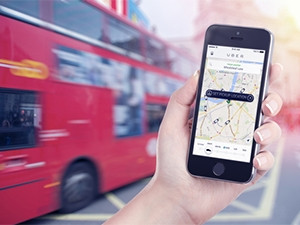
Uber has launched its wheelchair-accessible vehicle (WAV) service, UberWAV, in London, UK.
While wheelchair users in London can now book a wheelchair-accessible vehicle for the same price as an UberX - Uber's cheapest option - they will be faced with longer-than-average wait times for their ride, as UberWAVs are fewer in number, specifically-built, and require additional training to operate. The company estimates current UberWAV wait times to be 25-40 minutes.
An initial 55 UberWAVs are now operating in London, and the company plans to up this number to over 100 within the next few months.
The UberWAVs are equipped with ramps at the back of the vehicles and specialised winches and safety belts, and have space for wheelchair users to travel with one additional passenger. UberWAV drivers receive training in how passengers with disabilities may want to be assisted when using the service.
While UberWAV is not the first mainstream wheelchair-accessible cab service in London, as the city's iconic black cabs are wheelchair-accessible, the ride-hailing service claims "UberWAV fares will be on average 30% cheaper than a black cab".
Upon test-riding UberWAV for Whizz-Kidz, a UK charity focused on improving independence of young people with mobility-related disabilities, Whizz-Kidz' Kidz board chairperson George Fielding said he appreciated the ramp placement in UberWAVs, which allow passengers to face forwards in the car. "What's impressive is... I'm facing the right direction - I can see where I'm going," said Fielding. Many WAVs are built for wheelchair users to face the back or the side of the vehicle.
Fielding also put forward that the service gives wheelchair users more flexibility and choice.
Insufficient wheelchair access facilities in London's public transport system mean public transport can be more impractical and time-consuming for wheelchair users. For example, while London's underground trains are wheelchair-accessible, many underground stations do not have elevators from their platforms to the street.
Research by Whizz-Kidz indicates a high percentage of wheelchair users in the UK feel discouraged from using public transport due to negative attitudes of staff or other passengers towards them, among other reasons.
UberWAV has already been rolled out in a number of cities in North America.
Share